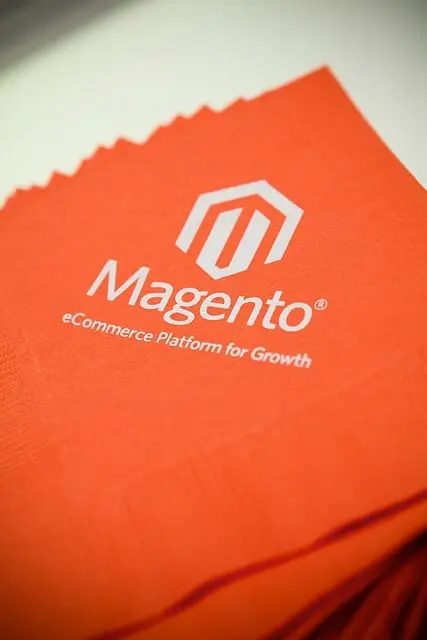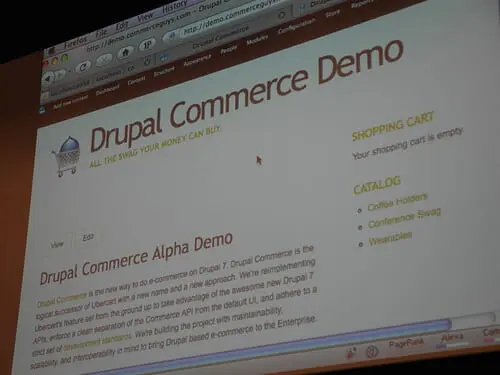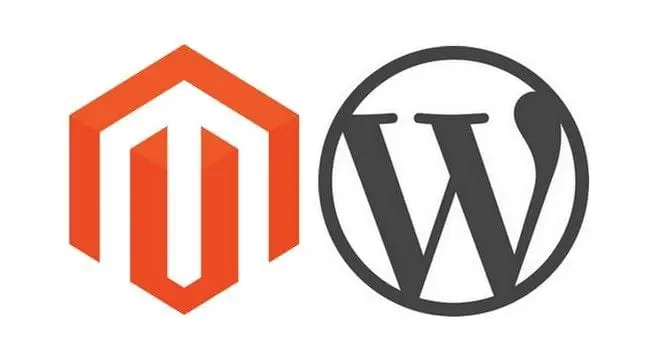Today there is a wide range of eCommerce solutions available, with something to suit businesses of all sizes. Whilst many start-ups lean towards platforms like Shopify to meet their needs, those considering scalability and the future of their business are more likely to favour complex solutions like Magento and Drupal. But which is the better choice? Here we’ve provided a Magento vs Drupal comparison to help you decide on the best eCommerce solution for your business.
About Magento
Magento is a leading eCommerce platform, favoured for it’s excellent out of the box features. With two solutions, Magento Community and Magento Enterprise, it is able to meet the needs of all businesses, from medium-sized companies to large enterprises.
Magento Community is the open source software, which is supported by a worldwide network of dedicated developers. The software is free to download, use and customise to your heart’s content!
About Drupal
Drupal is also open source and maintained by a community of over one million users and developers. The free software package is first and foremost a content management system, which makes it easier for you to organise, manage and publish content. It can however be integrated with various different plugins, including Drupal Commerce to transform it into a fully-fledged eCommerce system.
Magento vs Drupal: Usability
As a content management system, Drupal is known for being comprehensive and complex, especially when compared to key competitors like WordPress and Joomla. Similarly, Magento is also known for being a complex eCommerce solution, with a steep learning curve.
Having said this, both Drupal and Magento boast a wide range of features that are superior to many other platforms. It’s well worth learning to use them or seeking guidance from expert developers, as you will be able to get so much more out of them than the other solutions out there.
Magento vs Drupal: Customisation options
Drupal has a great theming system that gives you the option to create the eCommerce store you want. There are plenty of themes to choose from and installation is fairly straightforward.
Magento is much more complex than Drupal in terms of customisation; however you can achieve a lot more with it. There are thousands of free and premium Magento themes to choose from, which can be further edited to create a completely unique looking eCommerce store. Due to its complexity, you’ll probably need a Magento designer to help you with this.
Both Drupal and Magento have a wide range of modules, which can be used to extend the platforms. Drupal’s modules are usually free, whereas with Magento there are a mixture of free and paid for modules. Many people say that it’s harder to create custom modules for Magento than Drupal, however if you hire an experienced Magento developer, they will be able to create a module for pretty much any functionality you require.
Magento vs Drupal: Inventory management and selling products
Drupal Commerce allows you to add shopping cart functionality to your CMS. It is often noted for being particularly good for permission-based content, membership services and subscriptions; however it isn’t as robust for selling a wide range of products.
Magento however was built to be an eCommerce platform, meaning managing and selling products is very straightforward. The software boasts a wide range of inventory management and product selling features out of the box (including upselling functionality and coupon generation), which gives merchants the opportunity to sell more products to their customers.
In terms of reporting, Magento has great out of the box features. Its reports and analytics are very detailed, yet easy to view and understand. Drupal doesn’t really have a reporting system. There are modules for reporting; however none of them are up to Magento’s high standard.
Magneto vs Drupal: Content management system
Drupal was designed to be a content management system so it’s very easy to create, edit and maintain content to go alongside your products e.g. information pages and blogs. If content is more important to you than selling products, then Drupal is the one to go for.
Whilst Drupal may win in the CMS category, that doesn’t mean you can’t create content on Magento. The open source software also has a CMS and blogging functionality; however it’s primarily an eCommerce solution.
Magento vs Drupal: SEO
Drupal is fairly SEO friendly, however in order to achieve the best results, you’ll probably need to make use of some of the free SEO modules available.
Magento is also extremely SEO friendly. It offers merchants a wide range of SEO features out of the box that enable them to optimise their stores for search engines and improve their rankings. There are also a vast number of SEO modules available, which can take Magento stores’ SEO to the next level.
Magento vs Drupal: Cost
Both Magento and Drupal are open source and therefore free to download, use and customise. There are however costs you will need to consider for both platforms such as for hosting and development.
When choosing hosting for Magento or Drupal, it is a good idea to shop around for quotes to get the best price. It’s also important to check that the hosting provider is experienced in hosting either platform. Don’t go for your average run-of-the-mill hosting or it will result in performance problems somewhere down the line.
Development costs vary from one agency to the next, however as Magento is a more complex and specialist eCommerce platform, it is likely that the costs may be higher. Having said this, Magento offers far more beneficial eCommerce features than Drupal, so you could say the costs are easily justifiable.
Is one solution better than the other?
Magento and Drupal are both excellent platforms so it can be hard to say if one is better than the other. The best way to decide between the two is to consider what your business needs most.
If your primary aim is to create content and then simply sell a few products on the side, it makes much more sense to choose Drupal, as it is a powerful content management system.
If however your focus is on selling products and creating content is a secondary aim, then Magento will make the best choice. It’s easily the best eCommerce platform on the planet, offering businesses great customisability, high functionality and scalability that is hard to beat.
Image credits: Datashire, matt.farina and Davidmilliere

A selection of our older posts, written by various members of the team between 2015 to 2021.










0 Comments